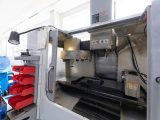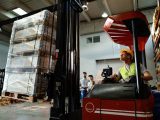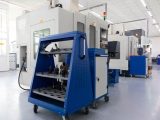
Comparing PCB Manufacturing in Singapore vs Asia
October 8, 2025Printed Circuit Boards (PCBs) sit at the heart of today’s electronics, powering everything from smartphones to electric vehicles. The ability to manufacture PCBs efficiently and to a high standard then becomes a key factor in supporting industries such as 5G, IoT, and automotive electronics.
Once we look at PCB manufacturing in Singapore and compare it with neighbouring countries like Malaysia, Thailand, and Vietnam, the differences become clear. Each country brings something unique to the table, whether it is cost savings, advanced technology, or sector specialisation.
Singapore: Precision Over Scale
Singapore has built a reputation for precision and quality. PCB manufacturers here place strong emphasis on international certifications such as ISO and IPC, ensuring that products meet the strict requirements of industries like aerospace, semiconductors, and medical devices. What sets Singapore apart is its investment in automation and research, enabling factories to manage smaller, more complex production runs without sacrificing reliability. Instead of competing on low-cost mass production, Singapore’s focus is on delivering consistently high-quality boards where precision cannot be compromised.
Malaysia: Competitive Costs and Large-Scale Output
Just across the border, Malaysia has developed a strong electronics base, with cost efficiency as its biggest advantage. Lower labour and operating expenses allow manufacturers to handle larger volumes at a fraction of the cost of Singapore. This makes Malaysia attractive for companies looking to scale up production quickly. Many global firms take a hybrid approach, keeping design and prototyping in Singapore while outsourcing bulk manufacturing to Malaysia. The trade-off is that some facilities still rely more heavily on manual labour, which can limit the level of automation and advanced capabilities compared to Singapore.
Thailand: Strengthening in Automotive and Industrial Electronics
Thailand has positioned itself as a key player in automotive and industrial applications, and its PCB sector reflects this focus. The government offers incentives to attract investment, and a skilled workforce is helping the industry gain traction. Thailand presents a solid option for companies involved in vehicle electronics or industrial machinery. However, when it comes to highly advanced technologies such as high-density interconnect (HDI) boards or flexible PCBs, the country is still developing its expertise. Singapore continues to hold the edge in these areas through stronger R&D and innovation.
Vietnam: Fast Growth Backed by Foreign Investment
Vietnam has quickly emerged as a major destination for electronics manufacturing, with significant investment from global tech brands driving its growth. PCB manufacturing is expanding alongside consumer electronics assembly, particularly for smartphones and IT devices. Vietnam’s appeal lies in its low costs and government support for technology transfer. That said, the industry is still maturing. While capable of handling large-scale production, Vietnam lags behind Singapore regarding advanced design, rigorous quality assurance, and specialised production for niche sectors.
Balancing Cost and Quality
Sitting at the core of the comparison is the balance between cost and quality. PCB manufacturing in the city-state is recognised for reliability, advanced technology, and adherence to strict standards. On the other hand, neighbouring countries offer attractive pricing and scalability. The decision, for many businesses, depends on their priorities—whether they value affordability and high output, or precision and reliability for critical applications. Increasingly, companies are combining both approaches: leveraging Singapore for high-end or sensitive production while shifting large-scale work to Malaysia, Thailand, or Vietnam.
Conclusion
PCB manufacturing capabilities in Singapore highlight the country’s strength in high-value, innovation-led production. While it does not compete on cost, its ability to deliver precision and reliability makes it indispensable for industries where failure is not an option. Neighbouring countries play a complementary role, offering cost-effective solutions for companies needing scale and speed. Together, the region forms a balanced ecosystem, giving businesses the flexibility to choose based on their specific requirements. The key is to look beyond immediate costs and consider long-term quality, reliability, and strategic value when deciding where to anchor PCB production.
Contact MPN Tech to partner with trusted PCB manufacturers in the Lion City.








